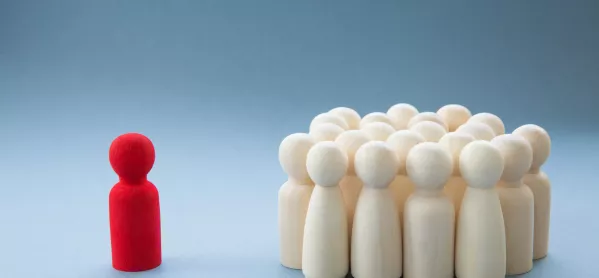‘Intensification of Islamophobia’ in Scottish schools

The first public inquiry into Islamophobia in Scotland has found that schools are “places where Islamophobia is experienced increasingly, both for teachers and pupils”.
The inquiry - set up in 2018 by a cross-party group of MSPs - found that there has been “an intensification of Islamophobia in schools”, with a key problem identified as “the under-representation of Muslim role models in schools”.
Background: Key findings of diversity in teaching working group
Diversity: Proportion of BAME teachers barely changes in a decade
A pupil’s experience: Scottish education can do better for BAME pupils
Archive interview: Anti-racism educator Jane Elliott
LISTEN: Teachers ‘too scared’ to talk about racism
Decolonising the curriculum: ‘Use the school curriculum to tackle racism’
A report based on the inquiry’s findings - published today and written by Newcastle University’s Professor Peter Hopkins - says: “Islamophobia has an impact on the educational outcomes of Muslims (and those perceived to be Muslim) in Scotland, according to 74 per cent of survey respondents and 77 per cent of Muslim respondents.
Islamophobia on the increase in schools
“Participants report Islamophobia in school as particularly challenging, stating that children are often excluded from everyday activities of school life such as representing their school or taking part in sports activities.”
The report continues: “Schools are shown to be places where Islamophobia is experienced increasingly, both for teachers and for pupils. There has been an intensification of Islamophobia in schools. A key problem is the under-representation of Muslim role models in schools for the children.”
The report makes 12 recommendations in relation to education, including calling for “appropriate programmes of race equality in the school workforce” to be implemented and for an understanding of Islamophobia to be integrated into “compulsory components of the Scottish education curricula and all teacher training education”.
It also says all teachers and lecturers should be provided with “compulsory training to counter Islamophobia” and that all educational institutions should “create safe spaces for discussion, prayer and reflection”.
The reporting and recording of Islamophobia in schools should also be improved, it says.
Commenting on the report, Scottish Labour leader Anas Sarwar - who is also the chair of the Cross Party Group on Tackling Islamophobia - said it should “shame us all”.
“We pride ourselves on being a welcome and tolerant country, but it’s clear how much more work we have to do,” he said.
“There are people in Scotland who feel scared to leave their homes for fear of verbal or physical attack; are withdrawing from public services with devastating knock-on consequences on their health and education; and feel they are outsiders in their own country.
“It is clear to me that we must redouble efforts to challenge and overcome hatred and prejudice.
“This requires politicians to come together on a cross-party basis, because the fight against hate is a fight for all of us.”
The Cross Party Group on Tackling Islamophobia organised an inquiry into the issue of Islamophobia in Scotland. A total of 447 respondents completed the online survey and 15 written submissions were received from organisations and agencies in Scotland.
Overall the report says that 75 per cent of Muslims say that Islamophobia is a regular or everyday issue in Scottish society; and 78 per cent of Muslims say Islamophobia is getting worse.
Islamophobia most commonly takes place in the street, according to the survey - but 18 per cent of those surveyed said they had experienced Islamophobia at school, as compared with 13 per cent who said they had experienced it at college or university.
Scotland has a target of at least 4 per cent of its teaching workforce coming from minority ethnic backgrounds by 2030 - up from to 1.6 per cent in 2019 - which would reflect the black, Asian and minority ethnic (BAME) population in the 2011 national census
However, the final report of the Diversity in the Teaching Profession Working Group - published in March - highlighted that to achieve the 4 per cent target it would mean increasing the number of BAME teachers recruited into the profession by approximately 200 per year, across all initial teacher education (ITE) providers, from August 2022 to August 2030 inclusive.
The group chair, Professor Rowena Arshad, concluded there was “still much to do for Scotland’s teaching workforce to better reflect the diversity of children and young people in Scottish schools”.
You need a Tes subscription to read this article
Subscribe now to read this article and get other subscriber-only content:
- Unlimited access to all Tes magazine content
- Exclusive subscriber-only stories
- Award-winning email newsletters
Already a subscriber? Log in
You need a subscription to read this article
Subscribe now to read this article and get other subscriber-only content, including:
- Unlimited access to all Tes magazine content
- Exclusive subscriber-only stories
- Award-winning email newsletters
topics in this article



